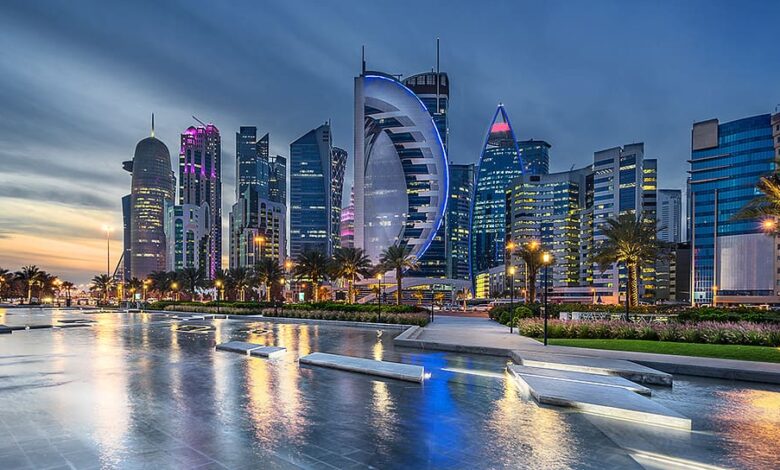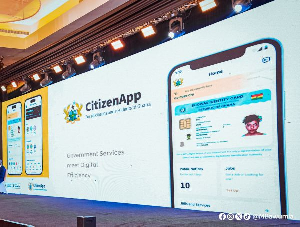Why Ghanaians Living in Kuwait are often Richer than those in the USA

When Ghanaians abroad are compared based on lifestyle, savings, and remittance capacity, many are surprised to find that Ghanaians living in Kuwait often appear financially better off than those living in the United States. While the USA is seen as the land of opportunity, the realities of cost of living, taxation, and lifestyle choices create a different economic experience compared to life in the Gulf countries.
In this article, we unpack the reasons why many Ghanaians in Kuwait tend to save more, remit more, and appear wealthier than their counterparts in America.
1. Lower Cost of Living vs. Higher Earnings Balance
While the United States offers higher-paying jobs compared to Kuwait in terms of raw salary figures, the cost of living in America is extremely high. Rent, utilities, healthcare, car insurance, and taxes can swallow up most of a person’s income. A Ghanaian living in a city like New York, Chicago, or Los Angeles might earn $3,000–$4,000 a month, but they’ll spend more than $2,500 of that on bills, rent, and transport.
In contrast, Ghanaians living in Kuwait often receive free or heavily subsidized housing, especially if they work in domestic services, security, or cleaning. Transportation and utilities may also be provided by employers. This allows workers to save a larger portion of their income, despite earning less than their counterparts in the U.S.
2. Tax-Free Income in Kuwait
One of the biggest advantages of working in Kuwait is that there’s no personal income tax. Every cedi-equivalent a Ghanaian earns in Kuwait goes straight into their pocket or bank account. In contrast, American residents pay federal income tax, state tax, Social Security, Medicare, and other deductions that can take 20%–30% or more of their paycheck.
This tax-free benefit allows Ghanaian workers in Kuwait to maximize their earnings, especially those who are intentional about saving and sending money home.
3. Minimal Lifestyle Pressure
In the U.S., Ghanaians are often exposed to a materialistic lifestyle culture—buying on credit, upgrading phones annually, leasing new cars, and paying high bills for Netflix, data, fast food, and more. Even middle-class individuals can feel the pressure to “keep up” with peers, which reduces their ability to save.
Kuwait, on the other hand, offers a more controlled lifestyle environment. Many Ghanaians working there live within employer-provided housing, with few entertainment or luxury expenses. As a result, disposable income is often sent directly to families in Ghana or invested in land, building projects, or business ventures.
4. Focused Financial Goals
Many Ghanaians who migrate to Kuwait do so with a clear short-term financial plan. Most are not seeking permanent residency or citizenship (which Kuwait does not offer easily). Instead, they aim to work for 3–7 years, save aggressively, and return home to start businesses, complete building projects, or fund their children’s education.
Compare that to many Ghanaians in the U.S., who often aim for permanent settlement, citizenship, and family relocation. This long-term plan comes with more financial responsibilities: schooling, mortgages, car loans, medical insurance, and child care—all of which reduce the amount they can send home or save.
5. Remittance Discipline
According to Bank of Ghana data and remittance tracking platforms, Ghanaians in the Gulf states—including Kuwait, Qatar, and UAE—consistently send more money home per capita than those in North America. The remittances are regular, predictable, and often directed toward construction, business capital, and support for extended families.
On the other hand, Ghanaians in the U.S. sometimes struggle to maintain regular remittances due to debt, high cost of living, or the burden of supporting nuclear families abroad.
6. Community and Cultural Cohesion
In Kuwait, Ghanaians often live and work in close-knit communities. There is a stronger sense of shared identity and financial accountability, often with people pooling resources for investment or business back home. Group housing and work environments also reduce isolation and excessive spending.
In contrast, Ghanaians in the U.S. often face a more individualistic culture. Many work long hours, commute long distances, and deal with social isolation. This sometimes leads to emotional spending, mental health issues, and a weaker sense of communal financial accountability.
7. No Credit Trap
America thrives on a credit-based economy. From car loans and credit cards to student debt and mortgages, it’s easy for new immigrants to fall into a cycle of borrowing. Many Ghanaians in the U.S. have good jobs but little cash because they’re servicing loans and debts. In Kuwait, access to credit is limited, and most workers avoid borrowing, choosing instead to live within their means.
This avoidance of debt allows them to build actual wealth, rather than a lifestyle built on future payments.
While the USA may offer more long-term immigration benefits and access to higher education, when it comes to short- to medium-term wealth accumulation, many Ghanaians in Kuwait are ahead of their peers in the U.S. The combination of low living costs, tax-free income, focused goals, and disciplined savings habits has made many Kuwait-based Ghanaians financially stable—even wealthy.
That’s not to say Kuwait is perfect. Many workers face difficult conditions, long hours, and limited freedom. However, those who endure with a clear plan often return to Ghana with land, houses, businesses, and strong savings—outcomes that are harder to reach in America without a long-term hustle.
Moral of the story? It’s not always about where you live—but how you plan, save, and execute your goals that makes the difference.





